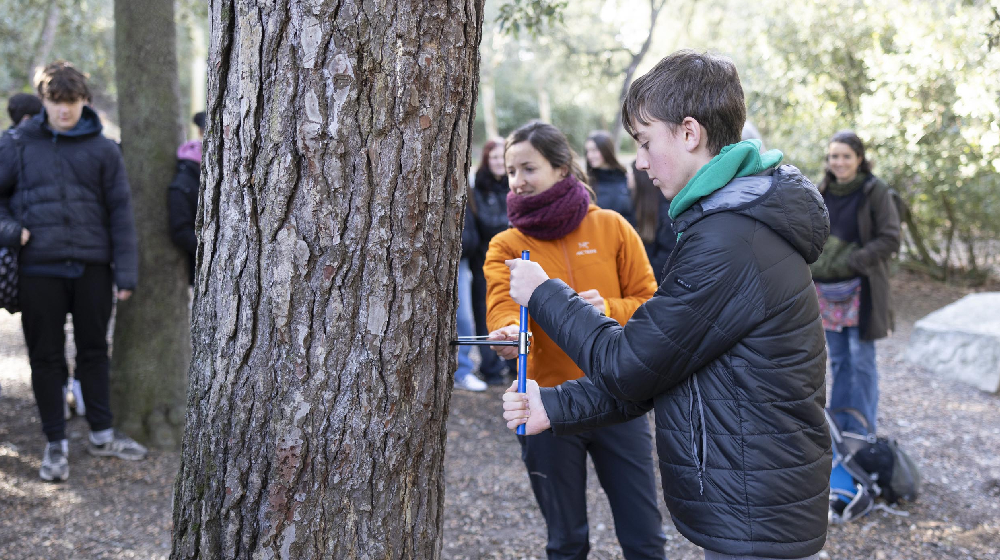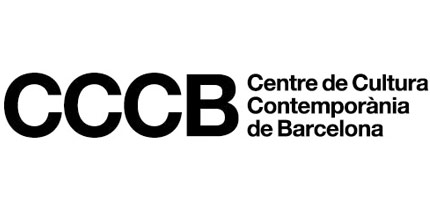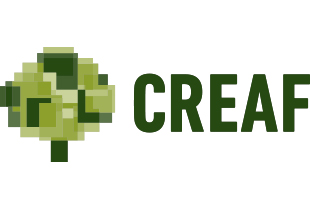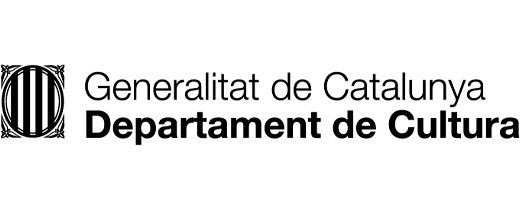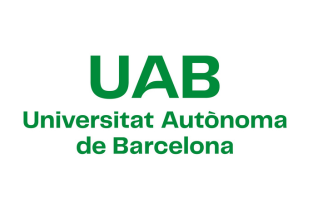ALIA. Forests
Science and creation for secondary schools
ALIA is the CCCB’s educational programme for young people that brings together scientific dissemination, thinking and creation to generate spaces of conversation and collaborative work between scientific research centres, agents in the cultural ecosystem and secondary schools.
Forests. Biodiversity, Literature and Climate Crisis
In this fourth edition, students in year four of obligatory secondary education and Baccalaureate at six schools will work on forests and biodiversity in the context of climate crisis with the research team at the Centre de Recerca Ecològica i Aplicacions Forestals (Centre for Ecological Research and Forestry Applications-CREAF) and the writer and journalist Gabi Martínez, a specialist in the relationship between nature and literature.
Thinking about the forest allows us to further explore some of the most urgent challenges of our present, such as the ecological crisis and the degradation of nature. This edition of ALIA invites students to a comprehensive exploration of the forest as a space that is both natural and cultural.
How do forests work? How does our way of life impact them? What are the consequences? These are some of the questions we will be looking at, leading us to ask others. How have we historically viewed the forest? How does the way we see nature affect the way we relate with it? What role can art and literature play in creating other possible imaginaries?
For seven months (from October 2024 to May 2025) students will bring an interdisciplinary approach to these questions, interrelating scientific research in the field of biology and ecology, bioacoustics, the history of thought and literary creation. The final assignment consists of writing a literary narrative and recording a soundscape.
This year’s ALIA is organized alongside the CCCB’s exhibition Amazonias. The Ancestral Future.
The secondary schools selected:
- INS Verdaguer (Barcelona)
- INS Jaume Balmes (Barcelona)
- INS La Sagrera Sant Andreu (Barcelona)
- INS El Martinet (El Ripollet)
- Escola Cooperativa El Puig (Esparreguera)
- Escola Pia Granollers (Granollers)
Timeline of work
The project will take place throughout the academic year (from October to May) in the form of an ongoing three-stage working process: research and documentation, creation, and sharing and presentation.
Stage 1. Research and documentation (October 2024-January 2025)
- 30 October 2024: opening talk with Eliane Brum and Gabi Martínez
- October-December 2024:
- Visit to the exhibition The Ancestral Future at the CCCB and meeting with a scientist from the Centre de Recerca Ecològica i Aplicacions Forestals (CREAF).
- Independent work at the schools based on the proposals in the teaching dossier.
Stage 2. Creation (January-April 2025)
- 13-22 January 2025: writing workshop with Gabi Martínez
- February-April 2025:
- Bioacoustics and sound recording session in Collserola forest.
- Independent work at the schools for the final creation of the project.
Stage 3. Sharing and presentation (April-May 2025)
- 15 April 2025: Completion and submission of the final creations.
- May 2025: Closing celebration. Presentation of the accounts written by the students and the soundscapes.
Associated training
To assist teaching staff in carrying out the ALIA work process, we are offering the following training, which consists of 15 hours certified by the Department of Education:
- 19 September 2024: presentation of the educational material (a teaching dossier of some 100 pages) to participating teachers. They then have two weeks to read the material and prepare a plan of how ALIA will be carried out at their schools.
- 3 October 2024: Handing in of the project planning document.
- 15 October 2024: Virtual session to present the applications and digital tools needed for some of the activities of ALIA. Forests.
- 13 November 2024: Guided visit to the exhibition Amazonias. The Ancestral Future with the curator, Claudi Carreras. For teachers only.
Participants: Gabi Martínez, Sandra Nogué, Francisco Lloret, Yolanda Melero, Sergi Herrando, Sara Marañón Jiménez, Ferran Sayol
Related contents
Sergi Herrando and Ana Dueso-Barroso
Meeting with a scientist from the CREAF
After the visit to the exhibition Amazons. The Ancestral Future at the CCCB, the students of the Institut La Sagrera – Sant Andreu in Barcelona meet a scientist from the Centre for Ecological Research and Forestry Applications (CREAF).
Francisco Lloret and Ana Dueso-Barroso
Meeting with a scientist from the CREAF
After the visit to the exhibition Amazons. The Ancestral Future at the CCCB, the students of the ’Institut Verdaguer in Barcelona meet a scientist from the Centre for Ecological Research and Forestry Applications (CREAF).
